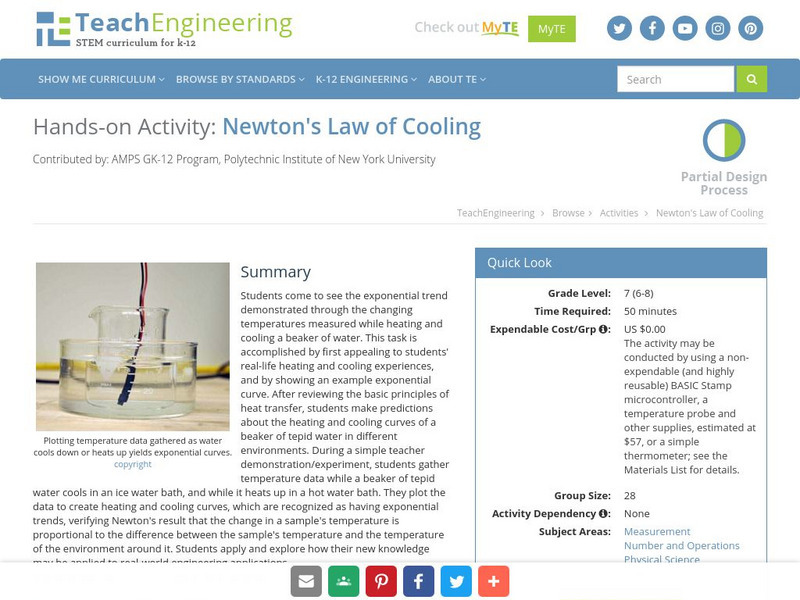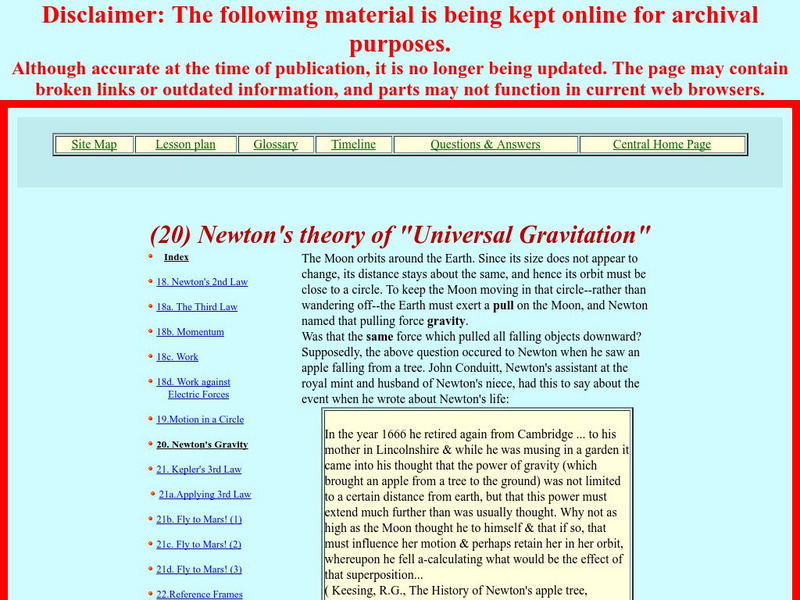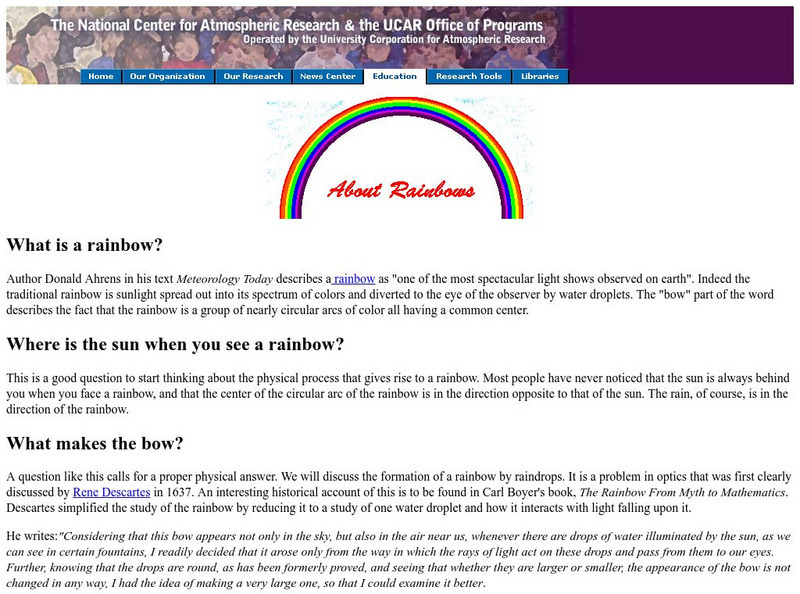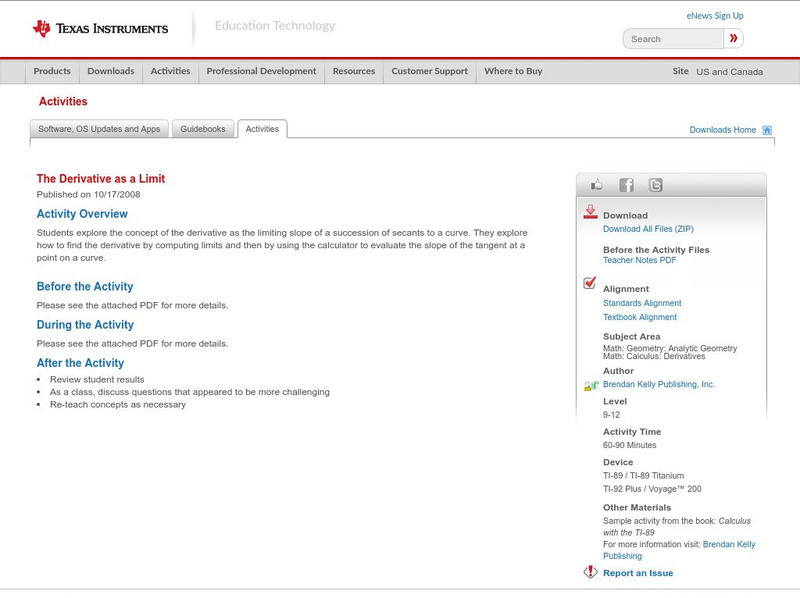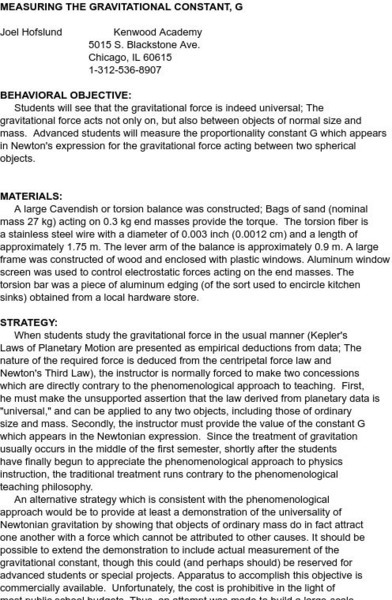TeachEngineering
Teach Engineering: Mechanics Mania
Through ten lessons and numerous activities, students explore the natural universal rules engineers and physicists use to understand how things move and stay still. Together, these rules are called "mechanics." The study of mechanics is...
TeachEngineering
Teach Engineering: Rockets
This unit teaches students how and why engineers design satellites to benefit life on Earth as well as allows students an opportunity to explore motion, rockets and rocket motion. Students discover that the motion of all objects...
TeachEngineering
Teach Engineering: What Is Newton's Third Law?
Students are introduced to Newton's third law of motion, and then learn that engineers apply Newton's third law and an understanding of reaction forces when designing a wide range of creations, from rockets and aircraft to door knobs,...
Texas Education Agency
Texas Gateway: Gravity Understanding
In this learning module students can get a better understanding of how gravity affects our solar system.
University of Virginia
Sir Isaac Newton Projectiles and Planets
A short account of Newton's life is provided (from birth to death) as is a somewhat detailed look at Newton's studies of gravity.
TeachEngineering
Teach Engineering: Newton's Law of Cooling
Middle schoolers come to see the exponential trend demonstrated through the changing temperatures measured while heating and cooling a beaker of water. This task is accomplished by first appealing to students' real-life heating and...
Georgia State University
Georgia State University: Hyper Physics: Mass, Weight, and Weightlessness
Site from HyperPhysics dealing with the topic of mass and weight. In addition the site deals with weightlessness. The numerous links to other pages help the student see how ideas are interrelated.
Frostburg State University
Frostburg State University Chemistry Online: Viscosity and Paste
Describes the changes in viscosity when various amounts of force are applied to a Non-Newtonian liquid. Gives the example of cornstarch paste.
Other
Nye Thermodynamics: Basic Gas Turbine Theory
Outstanding information (and a lot of it) on gas turbine (jet) engines. Describes the history behind their development and the theory behind their operation. Well written and includes very informative graphics.
Other
Bscs: Forces and Motion Content Background Document
In this document, we will try to answer a fundamental question of physical science, "Why do things start to move, slow down, speed up, stop moving or change direction?" In answering these core questions we can develop concepts that can...
NASA
Nasa: Newton's Theory of "Universal Gravitation"
This site, which is provided for by NASA, discusses the thinking which led Newton to understand universal gravitation.
Georgia State University
Georgia State University: Hyper Physics: Rockets
HyperPhysics site with dealing with the mathematics of rocket flight. The site is interactive and allows the user to input data. This is a rather high level site and, while any student could use it to get answers, to understand some of...
NOAA
Noaa: Free Fall Determination of Newtonian Constant of Gravity
Descriptions of an experiment performed by geologists to determine the Newtonian constant of gravity, or "G". Highly sophisticated reading.
Florida State University
Florida State University: Science, Optics & You: Sir Isaac Newton
Biography of Sir Isaac Newton (1642-1727), a scientist whose impact is felt in many disciplines today. His laws of motion are integral to basic physics, and he co-invented calculus.
Colorado State University
Usma: Commonly Used Metric System Units and Symbols
USMA provides a listing of commonly used metric system units, symbols, and prefixes.
University of California
University of California Los Angeles: Force, Work and Power
Describes the definition and relationships between force, work and power. Includes nice drawings to increase conceptual understanding.
Rice University
Galileo Project: Isaac Newton
This site from the Galileo Project of Rice University is a sort of encyclopedic entry that outlines important information about Newton's life and work. The information is presented in a list format and is worth checking out.
University Corporation for Atmospheric Research
Ucar: About Rainbows
This site from the University Corporation of Atmospheric Research provides an illustrated article about the phenomenon of rainbows.
University of North Carolina
A Dictionary of Units of Measurement
This site contains an extensive list of various units of measurement known internationally and across several disciplines. Unit symbols are also included.
Texas Instruments
Texas Instruments: The Derivative as a Limit
Read about the near-simultaneous discovery of Calculus by Liebniz and Newton, then see some examples worked through of finding derivatives of functions using the limit definition of derivative. Following the examples are exercises with...
Science and Mathematics Initiative for Learning Enhancement (SMILE)
Smile: Measuring the Gravitational Constant, G
A demonstration/lab idea for determining the numerical value of the universal gravitation constant using a torsion balance.
University of St. Andrews (UK)
University of St. Andrews: Error Estimate for the Newton Raphson Method
Find the method for finding the error in the Newton Raphson Method at this site.
Project Britain
Primary Homework Help: Forces Quiz
First, read some fast facts about forces, then take a ten-question, multiple-choice quiz. Check to see if your answers are correct after each question.
TED Talks
Ted: Ted Ed: Free Falling in Outer Space
With a little help from Sir Isaac Newton, Matt J. Carlson explains the basic forces acting on an astronaut during a free fall. [2:59]







